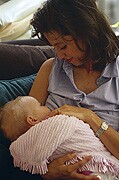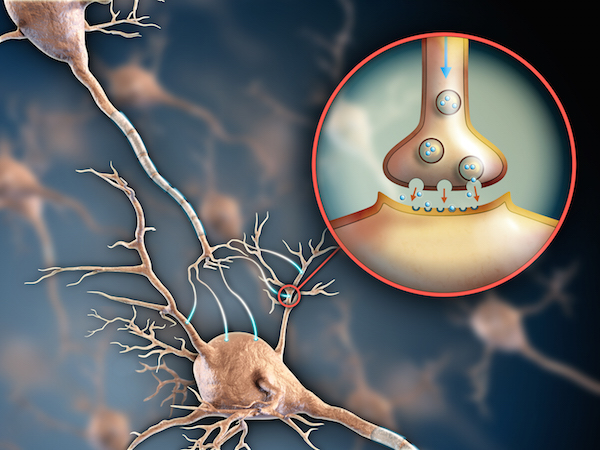
TUESDAY, June 11 (HealthDay News) — Breast-feeding is good for a baby’s brain, a new study says.
Researchers used MRI scans to examine brain growth in 133 children ranging in age from 10 months to 4 years. By age 2, babies who were breast-fed exclusively for at least three months had greater levels of development in key parts of the brain than those who were fed formula only or a combination of formula and breast milk.
The extra growth was most evident in parts of the brain associated with things such as language, emotional function and thinking skills, according to the study published online May 28 in the journal NeuroImage.
“We’re finding the difference [in white matter growth] is on the order of 20 to 30 percent, comparing the breast-fed and the non-breast-fed kids,” study author Sean Deoni, an assistant professor of engineering at Brown University, said in a university news release. “I think it’s astounding that you could have that much difference so early.”
In addition to brain imaging, the researchers gave older children tests of thinking ability and found increased language and motor control performance, and increased visual perception in those who were breast-fed.
The researchers also found that babies who were breast-fed for more than a year had significantly more brain growth — especially in areas of the brain that control motor skills — than those who were breast-fed for less than a year.
This is not the first study to suggest that breast-feeding helps babies’ brain development, but it is the first imaging study to examine breast-feeding-related differences in the brains of very young and healthy children, according to Deoni.
“We wanted to see how early these changes in brain development actually occur. We show that they’re there almost right off the bat,” he said.
The findings add to a substantial body of evidence that breast-feeding is good for children’s brains.
“I think I would argue that combined with all the other evidence, it seems like breast-feeding is absolutely beneficial,” Deoni said.
More information
The U.S. Office on Women’s Health has more about breast-feeding.

